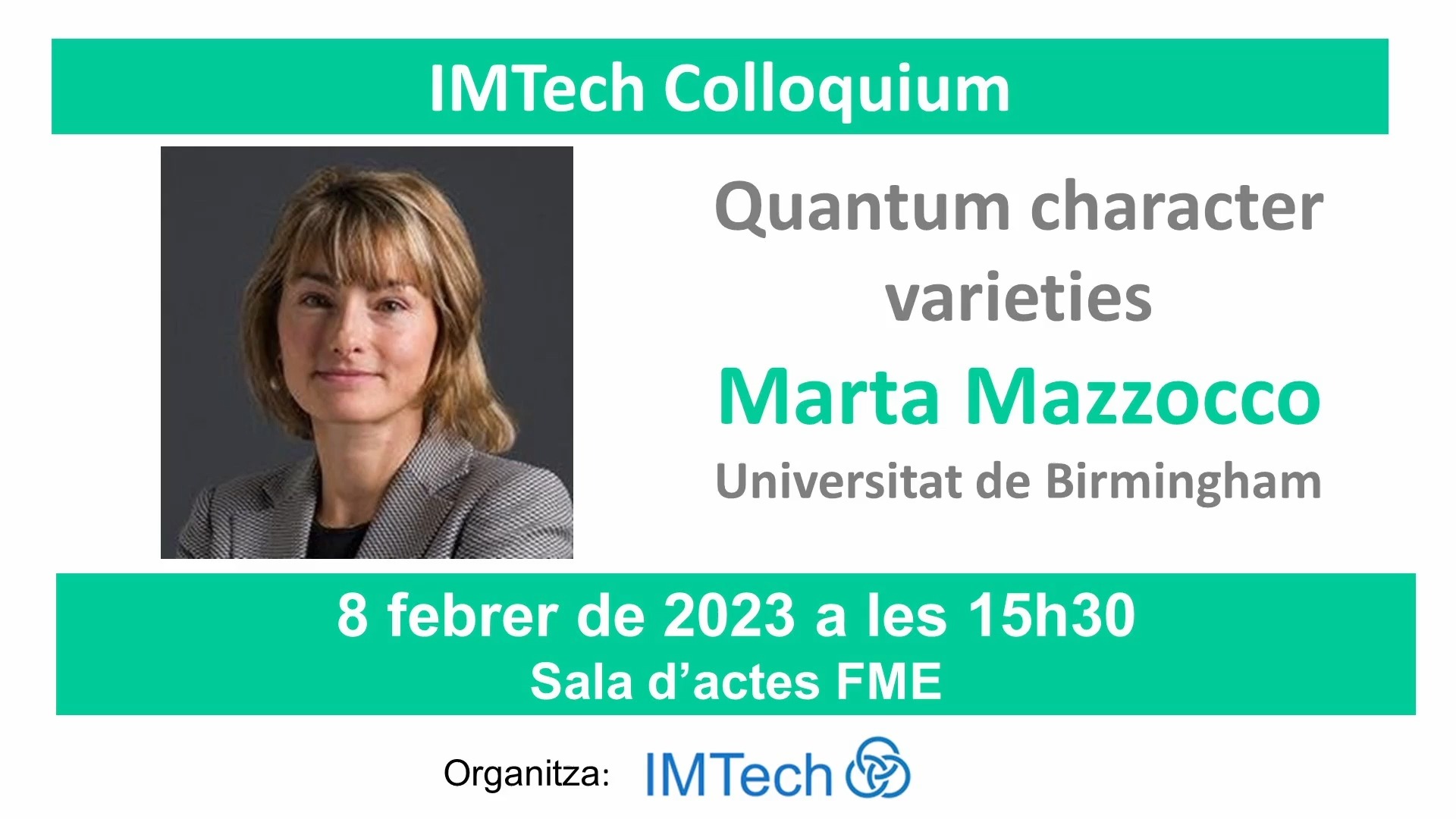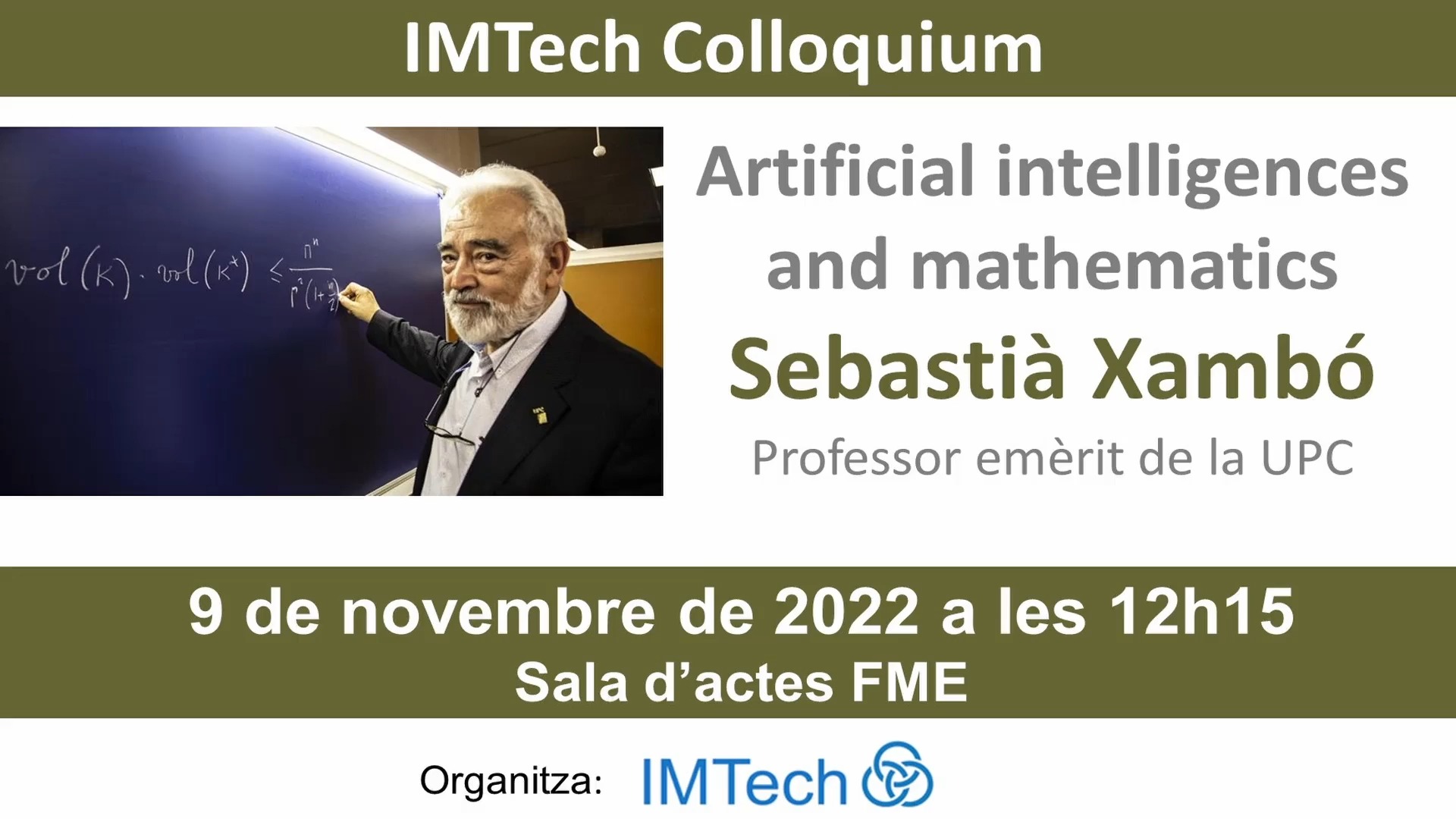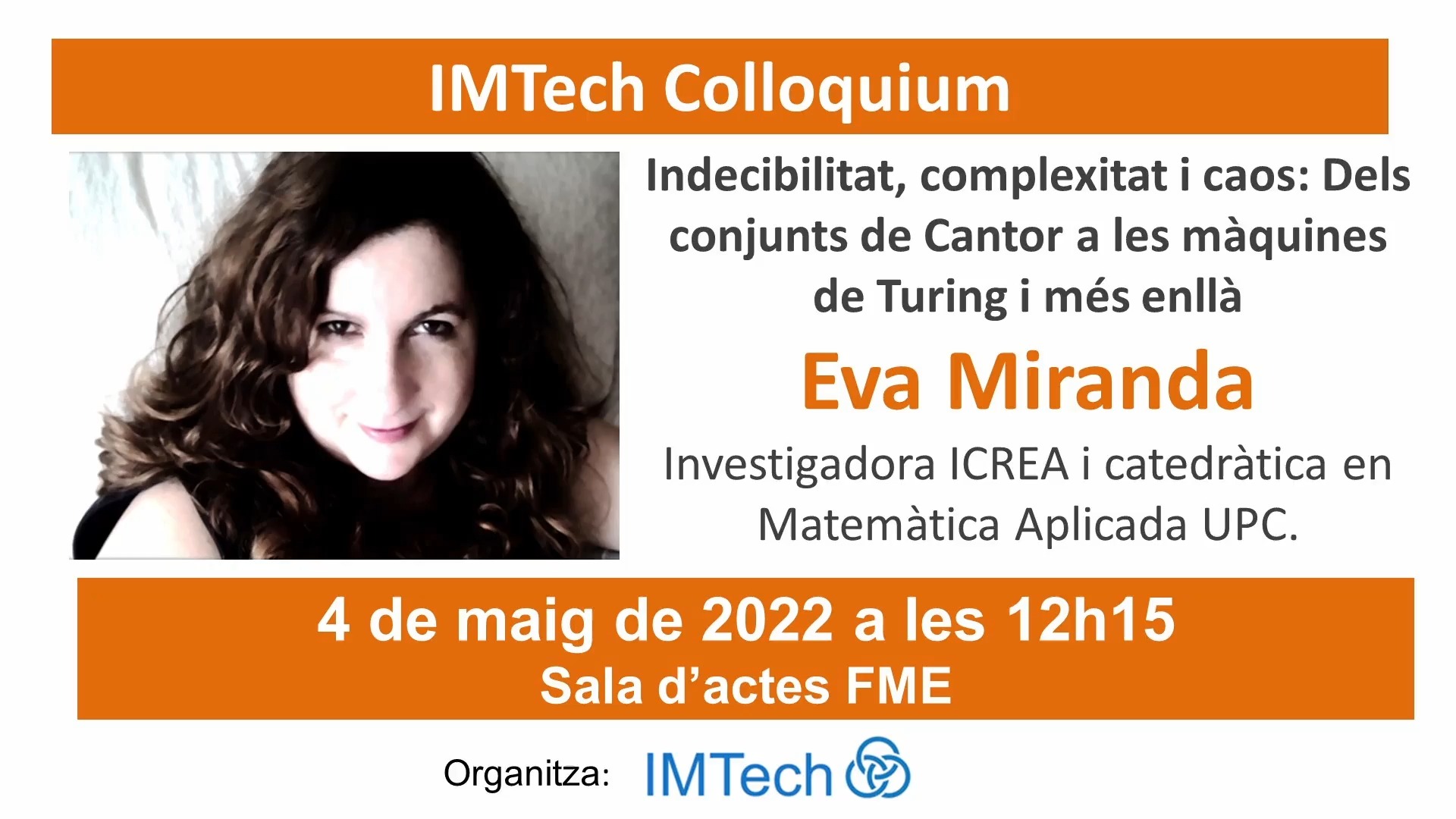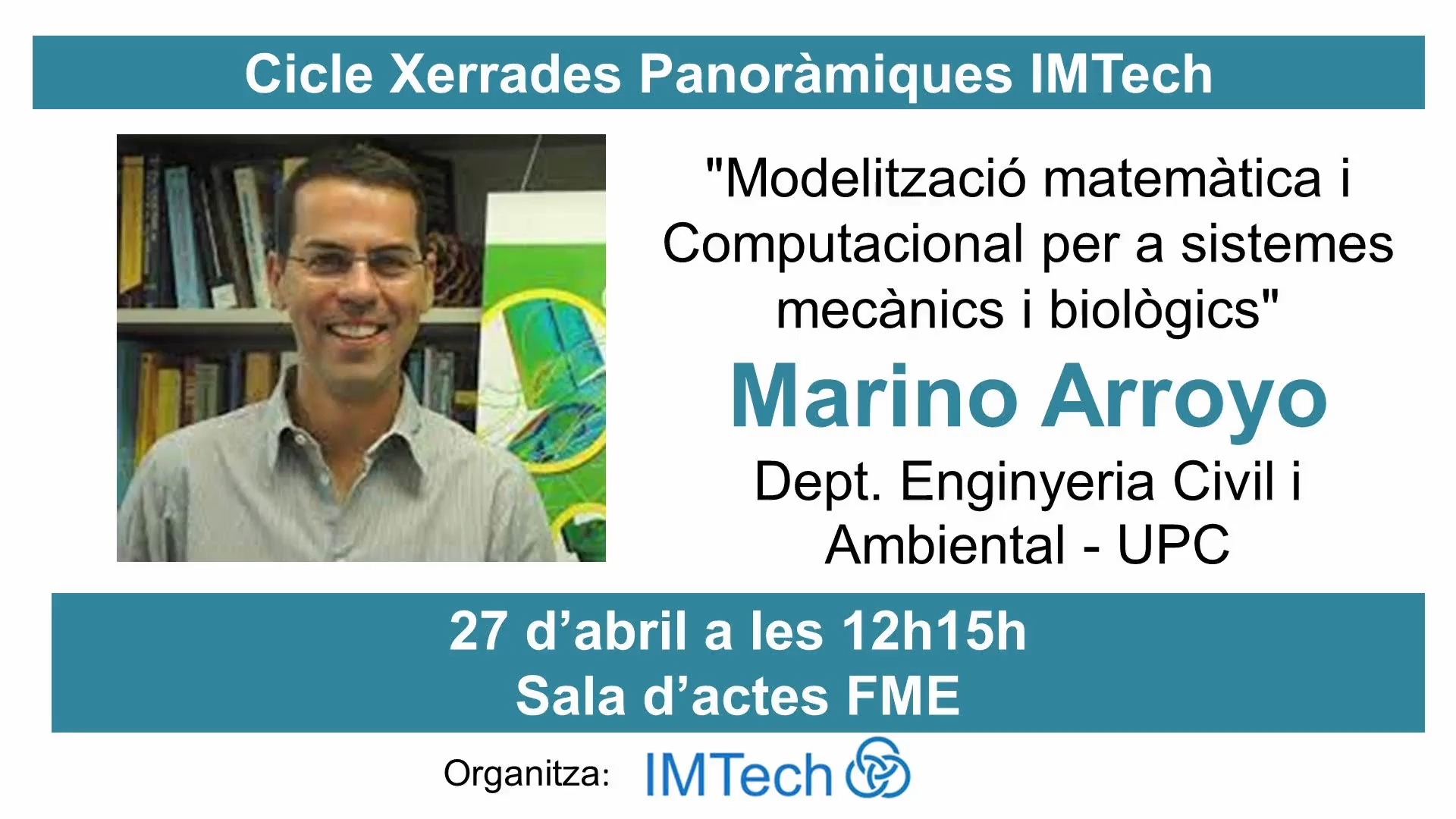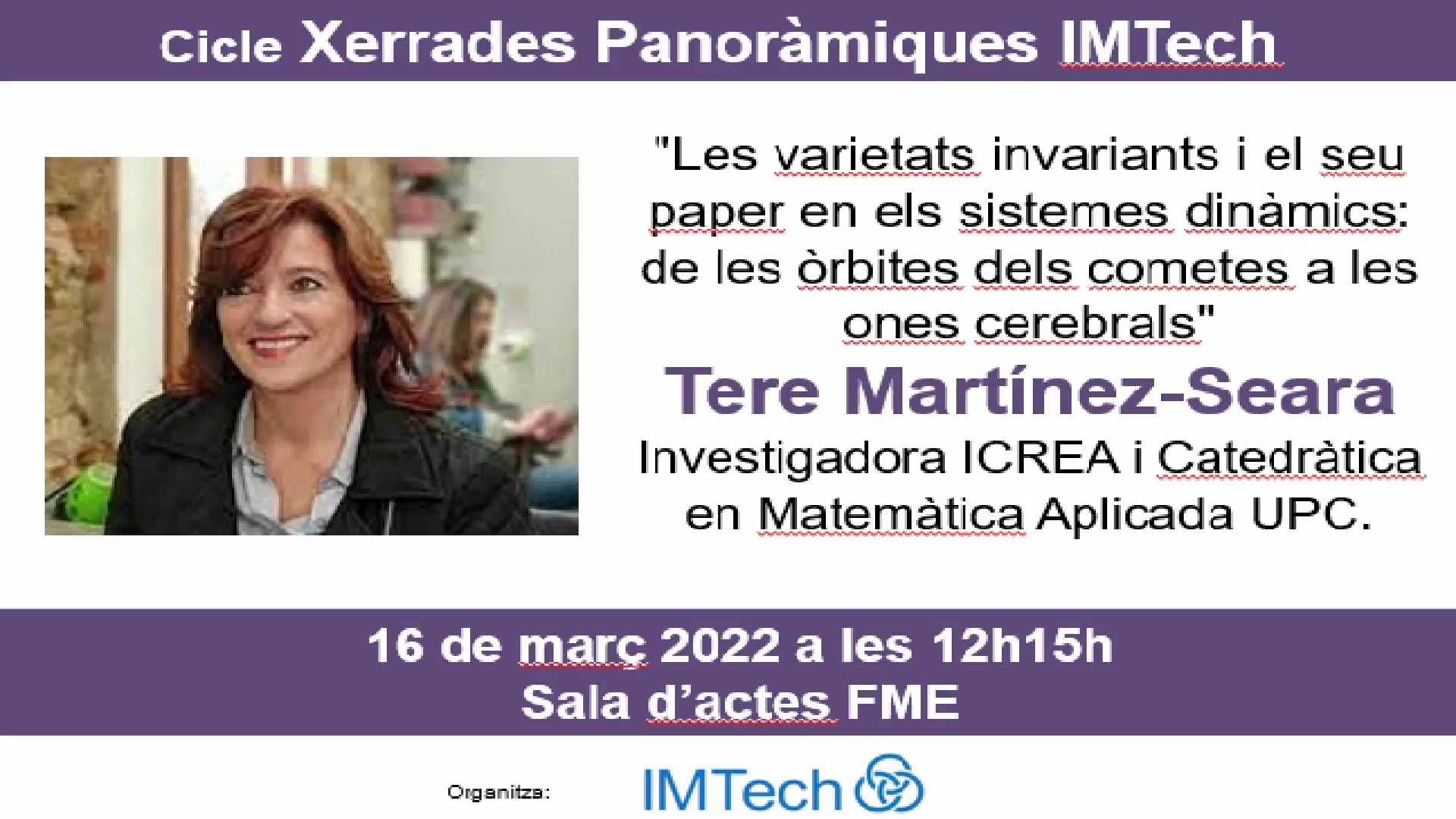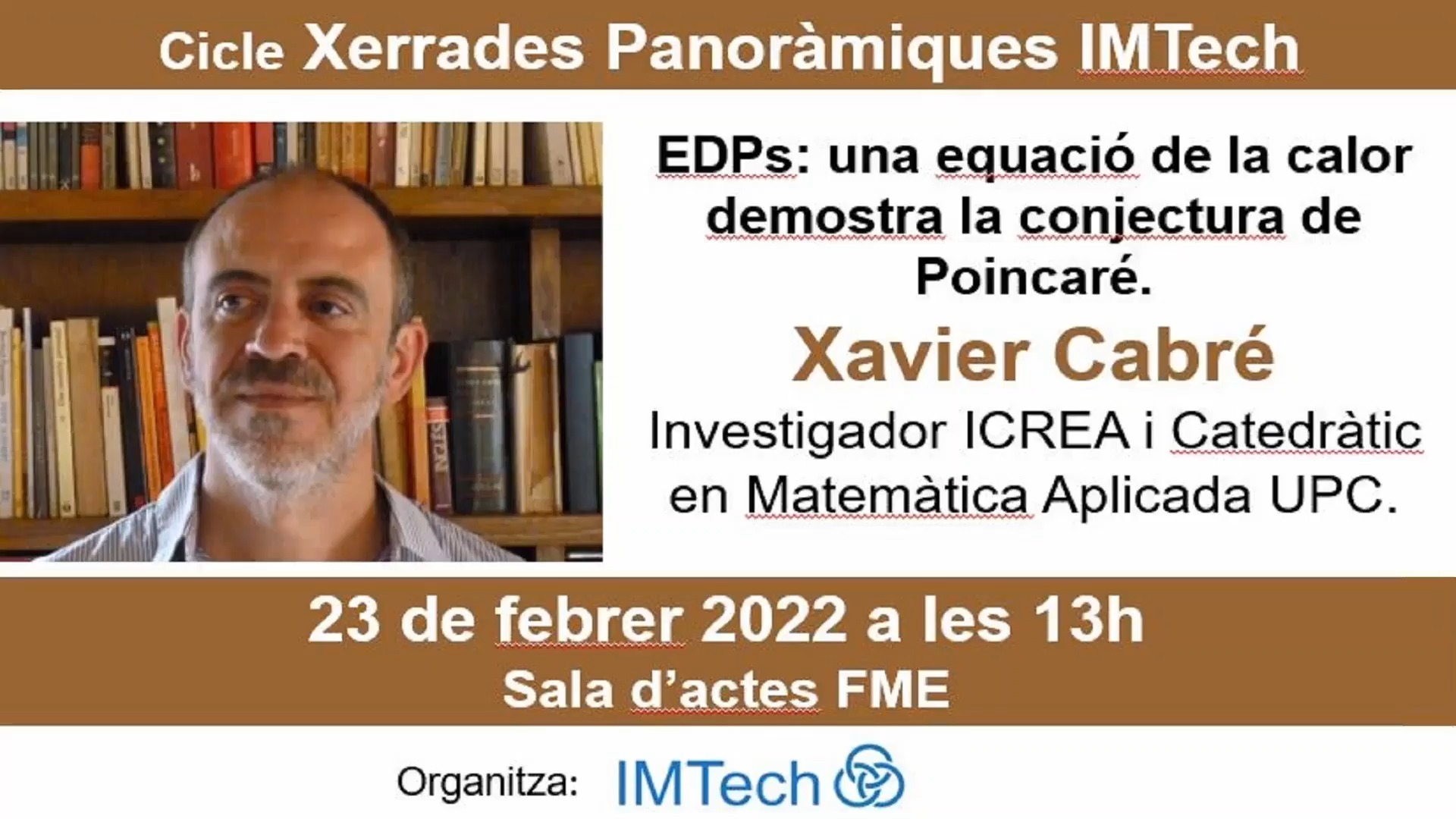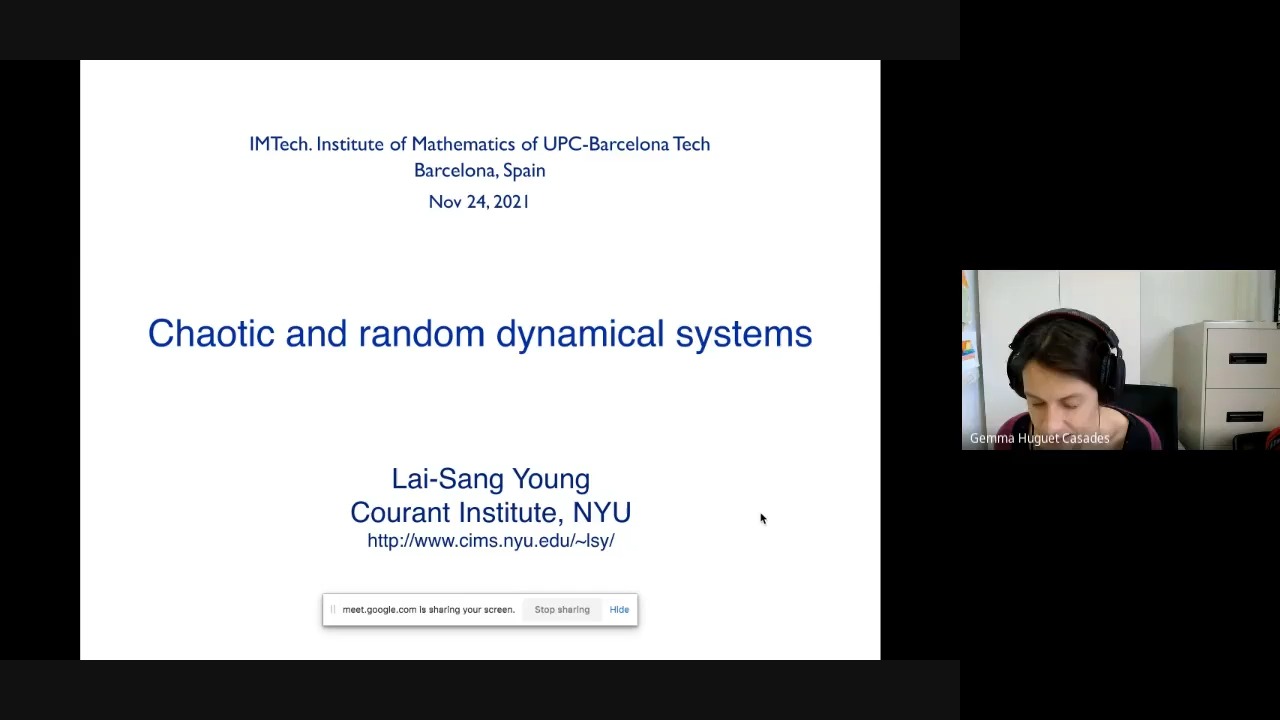Mathematical and computational modeling of living materials
Accés obert
27 d’abr. 2022
147
visualitzacions
Marino Arroyo Balaguer
Marino Arroyo Balaguer en el Cicle de Xerrades Panoràmiques sobre temes de recerca d'actualitat adreçades a estudiants i joves investigadors
Llicència: Reconocimiento-NoComercial-CompartirIgual 3.0 España (CC BY-NC-SA 3.0 ES)
Sèrie:
IMTech. Colloquium
Vídeos de la mateixa sèrie
Computation and Conversation
Accés obert
29 d’abr. 2025
Every computational process seems to involve two or more entities that are engaged in a conversation with each other. Communication complexity is the study of the complexity of such conversations. In this talk, I will give a broad overview of this connection between computation and conversations, including some nice consequences for computational models like Turing machines and data structures. I will describe some of the big open questions in the area, which are clean mathematical questions in their own right. No background will be assumed.
Unstable motions in Celestial Mechanics
Accés obert
10 d’abr. 2024
One of the oldest problems in dynamical systems is the stability of the Solar System. That is, consider N bodies moving following Newton's law of gravitation, one of them with large mass (the Sun) and the others with small masses (the planets). If one neglects, the gravitational interaction between planets, the classical Kepler's laws assert that the planets move on ellipses. Then, one wants to understand whether the effect of the planets mutual attraction causes long term changes on the shape and relative position of the Keplerian ellipses.
Nowadays, it is known that the answer to the stability of the Solar system is rather nuanced and that stability and instability coexist for nearby initial conditions. In this talk I will explain how to construct unstable motions in this model, which lead to drastic changes in the semimajor axes, eccentricity and inclination of these ellipses.
Nowadays, it is known that the answer to the stability of the Solar system is rather nuanced and that stability and instability coexist for nearby initial conditions. In this talk I will explain how to construct unstable motions in this model, which lead to drastic changes in the semimajor axes, eccentricity and inclination of these ellipses.
Continuum models of strongly interacting Brownian particles
Accés obert
29 de nov. 2023
Maria Bruna will discuss many-particle systems with strong interactions. These models are motivated by the study of many-particle systems in biology or industrial applications, where it is crucial to account for the finite size of particles. I will explain how these interactions can be included in the models and different methods to derive continuum PDE descriptions. In the second part of the talk, I will show how these methods can be used to model active matter systems or self-propelled particles such as bacteria or ants.
Quantum character varieties
Accés obert
8 de febr. 2023
In this talk Marta Mazzocco will introduce the concept of character variety in the simple example of a torus with one disk removed. We will show how this is a surface in C^3 defined by a cubic polynomial, called the Markov cubic. We will show the relation between the Markov cubic, singularity theory, Painlevé differential equations, and introduce a cluster algebra structure on it which is related to Markov numbers. We will discuss quantisation of the Markov cubic in terms of basic orthogonal polynomials and relate it to Sklyanin algebra.
Artificial intelligences and mathematics
Accés obert
9 de nov. 2022
Sebastià Xambó will discuss about artificial intelligences and mathematics
Indecibilitat, complexitat i caos: dels conjunts de Cantor a les màquines de Turing i més enllà
Accés obert
4 de maig 2022
The speaker of the IMTech Colloquium will be Eva Miranda (UPC), a leading figure in Differential Geometry, Mathematical Physics and Dynamical Systems
Mathematical and computational modeling of living materials
Accés obert
27 d’abr. 2022
Marino Arroyo Balaguer en el Cicle de Xerrades Panoràmiques sobre temes de recerca d'actualitat adreçades a estudiants i joves investigadors
Les varietats invariants i el seu paper en els sistemes dinàmics: de les òrbites dels cometes a les ones cerebrals
Accés obert
16 de març 2022
Maria Teresa Martínez-Seara Alonso en el Cicle de Xerrades Panoràmiques sobre temes de recerca d'actualitat adreçades a estudiants i joves investigadors
EDPs: una equació de la calor demostra la conjectura de Poincaré
Accés obert
23 de febr. 2022
Xavier Cabré Vilagut en el Cicle de Xerrades Panoràmiques sobre temes de recerca d'actualitat adreçades a estudiants i joves investigadors.
Chaotic and random dynamical systems
Accés obert
24 de nov. 2021
The speaker of the IMTech Colloquium will be Lai-Sang Young (NYU), a leading figure in dynamical systems theory and applications. Lai-Sang Young (NYU) will speak at the IMTECH Colloquium on Wednesday, November 24 at 3pm (online)




